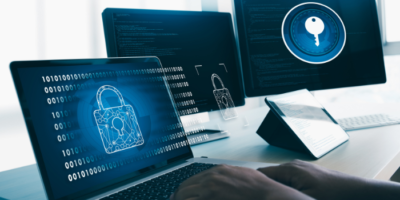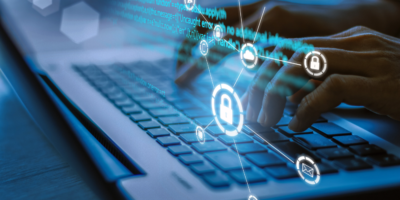As a professional, it is important to be aware of the latest security threats and ways to protect yourself from breaches. To stay safe online, you need to have a good understanding of the basics of security awareness training. When designing your best security awareness training program, consider incorporating these topics.
TOP SECURITY AWARENESS TOPICS:
1. PHISHING SCAMS
Phishing is a type of online scam where hackers try to trick you into giving them your personal or financial information. They may do this by sending fake emails or setting up imposter websites that look like the real thing. Being aware of phishing attempts and never clicking on links or open attachments from unknown sources can help protect you from this type of attack.
2. MALWARE
Malware is a type of software designed to damage or disable computers. It installs on your computer without your knowledge and then steals your personal information or takes over your machine. Keeping your computer updated with the latest security patches can help protect you from malware.
3. PASSWORD SECURITY
Using strong and unique passwords for all your online accounts is one of the best ways to protect yourself from a breach. Hackers can use passwords leaked in data breaches to access your accounts. Therefore, it is important to change your passwords regularly and never reuse them.
4. SOCIAL ENGINEERING
Social engineering is a type of attack where hackers exploit human weaknesses to gain access to sensitive information. They may do this by tricking people into divulging their login credentials or confidential data. Be aware of social engineering attempts and never give out personal information to someone you do not know or trust.
5. RANSOMWARE
Ransomware is a type of malware that can encrypt your files and hold them hostage until you pay a ransom. It can be difficult to remove and can cause significant financial damage. Being aware of ransomware and never opening email attachments or clicking on links from unknown sources can help protect you from this type of attack.
6. MOBILE DEVICE SECURITY
As more people use their smartphones and other mobile devices for work, it is important to be aware of the risks associated with these devices. Hackers can gain access to your device if you do not secure it properly, which could lead to the loss of sensitive data. Be sure to keep your mobile devices up to date with the latest security patches and only download apps from trusted sources.
7. PHYSICAL SECURITY
People overlook physical security often, but it is just as important as cybersecurity. Be sure to secure your workstation with a password and lock it when you are away from it. Also, be aware of your surroundings and never leave your devices or personal belongings unsecured in public places.
8. EMAIL SCAMS
Email scams are becoming increasingly common as hackers try to trick people into giving them their personal or financial information. Be sure to never click on links or open attachments from unknown sources and be aware of the signs of a phishing email.
9. SOCIAL MEDIA SECURITY
Social media is a convenient way to stay connected with friends and family. However, it is important to be aware of the risks associated with these platforms. Hackers can gain access to your accounts if you are not careful, which could lead to the loss of sensitive data. Be sure to only connect with people you know and trust. Also, never click on links or open attachments from unknown sources.
BOTTOM LINE
There are several security best practices everyone should follow to help protect themselves from a security breach. These include using strong and unique passwords, never sharing personal information online, and only downloading apps from trusted sources. By incorporating these topics into your security awareness training, you can help protect yourself and your organization from the latest threats.
Medical ITG can help your workforce stay compliant by providing periodic security awareness training through an online portal. Our training topics are always up to date with the latest threats so you can be sure your employees are receiving the most current information. Contact us today to learn more about our services.










